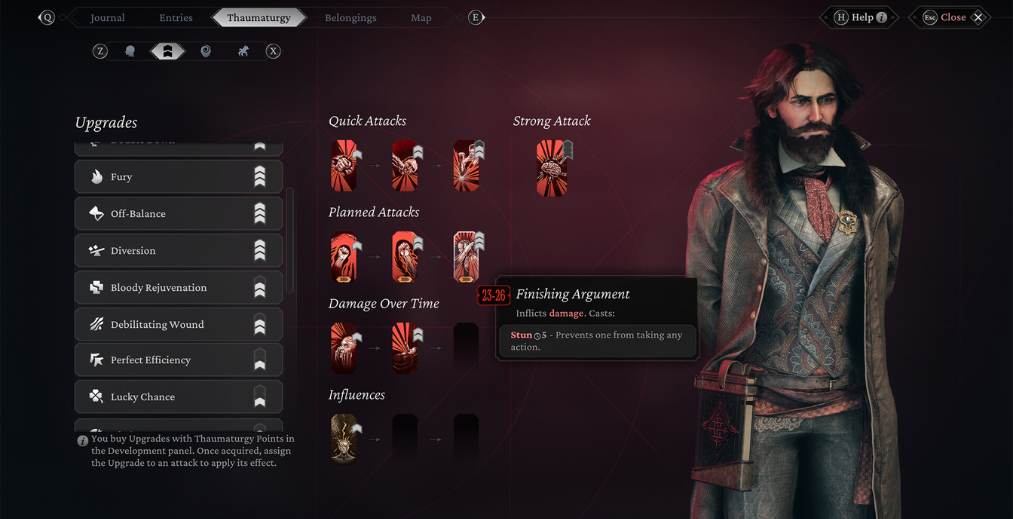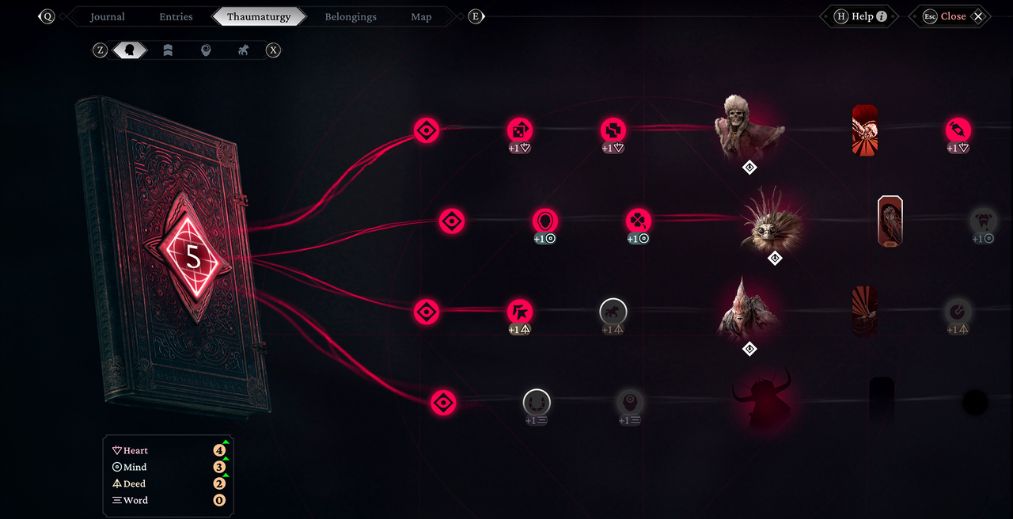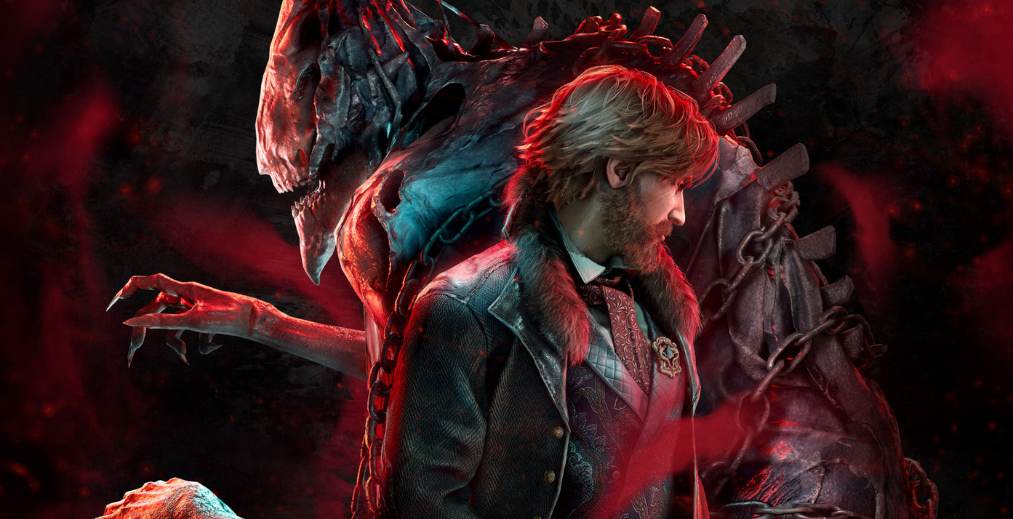An investigator with psychic abilities seems like an unstoppable force, but sometimes the truth can be messy for everyone involved. The Thaumaturge is a story-driven RPG driven to prove that the grass is occasionally dead on both sides. Developer Fool’s Theory and publisher 11-bit studios have created a unique experience that lets players try their hand at investigating and manipulating.
Players step into the role of Wiktor Szulski, the titular thaumaturge, as he returns home to Warsaw, Poland, in the early 20th century. Called home due to the death of a family member, he’s forced to face his past while on the hunt for his inheritance, a grimoire that belonged to his father. Among his talents is the ability to form pacts with salutors, supernatural beings that can attach themselves to people with ‘flaws.’
Pride, remorse, rage and more can draw the attention of a salutor and amplify negative emotions, creating communities full of volatile and disgruntled civilians. These situations make up the bulk of The Thaumaturge; discovering the presence of a salutor, investigating to identify the host, and battling the creature to add it to your toolset and growing stronger as a thaumaturge.
Wiktor’s other signature ability is vital to conducting these investigations. He can find items left behind by people and sense emotions and strong memories tied to them, allowing him to form conclusions based on the evidence he finds. These breakthroughs often allow the player to resolve situations more peacefully or even manipulate someone with the help of a salutor. Still, the issues portrayed in the game are rarely black and white. Sometimes, what seems objectively right or wrong can be twisted or re-examined to provide a new perspective. Not every case was as engaging as the more thrilling scenarios, but they varied greatly in intensity and urgency, keeping the gameplay loop interesting.

To discover sources of information, players can activate a pulse with a button press, creating a red mist that highlights details that can contribute to a breakthrough. Additionally, this leads the player toward the quest they’re focused on. At a glance, this seems like a novel idea. Still, in practice, players must spam the ability repeatedly. Lest they miss an errant detail on a random bench nearby, turning the feature into an obligation instead of a fun ability.
Leveling passive skills is largely linear, each skill path granting stronger mental skills and modifiers for his attacks. These allow players to glean more information from objects and defeat their opponents more easily. However, each skill path is limited until Wiktor captures another salutor in the corresponding path. This contributed to a high point in the game, where finding a salutor allowed for sorely needed upgrades that would clear the way for an ongoing side quest—being able to return to a side quest with renewed purpose and the promise of a resolution made finding each new salutor a joy.
Of course, a salutor won’t go down without a fight. Throughout Wiktor’s journey around Warsaw, he also finds many people who let their fists do the talking. Thankfully, his salutor’s grant him plenty of physical capabilities as well, which come in handy in the many turn-based fights players will engage in. In addition to an ever-expanding array of attacks and combos, leveling Wiktor’s skills also unlocks modifiers. These can be added to any attack so long as its value doesn’t exceed the attack’s capacity. This allows the player to create their own strategies, mixing attacks and modifiers to best suit them or a particular fight.

Unfortunately, the fighting itself leaves something to be desired. Wiktor and his salutor can each pick a target and an attack, with weaker attacks taking less time to employ. Still, the shifting timeline of attacks and status effects can make it hard to keep track of Wiktor’s vitals, occasionally leading to an early game over. Checkpoints aren’t too infrequent, but having to replay a conversation or part of your investigation is annoying because Wiktor’s health suddenly dropped to zero. Otherwise, tense music and fun attack animations, especially for your salutors, make combat an enjoyable facet of The Thaumaturge.
The music generally fits the tone and setting of the game. Despite the supernatural aspects, it appears that the developer also made a strong effort to incorporate history into the story. As one might expect from the early 20th-century setting, historical events and figures such as Grigori Rasputin cast an influence that can’t be ignored. However, these historical nods accentuate the story instead of primarily taking center stage.
While world events may create tension within the city, the inhabitants of Warsaw and their interpersonal dramas are what fuel The Thaumaturge. Making the characters feel more believable and thoughtful is aided further by skillful voice acting. True to an RPG, the decisions players make as Wiktor also create consequences they’ll have to deal with. Some even spanning hours of gameplay. The threads of lives that Wiktor affects create a rich tapestry unique to each player, making the title worth a replay or two.
The Thaumaturge presents a fantastical look into history and allows players to take the wheel. With supernatural creatures, investigations spanning whole neighborhoods, and solid voice acting, there’s a lot to enjoy. It doesn’t get everything right, but it does provide enough depth and creativity to take the journey once or twice.
The Thaumaturge will be released on March 4th on PC, PlayStation 5, and Xbox Series X|S.
-
Rating - 8/108/10
TL;DR
The Thaumaturge presents a fantastical look into history and allows players to take the wheel. With supernatural creatures, investigations spanning whole neighborhoods, and solid voice acting, there’s a lot to enjoy. It doesn’t get everything right, but it does provide enough depth and creativity to take the journey once or twice.





